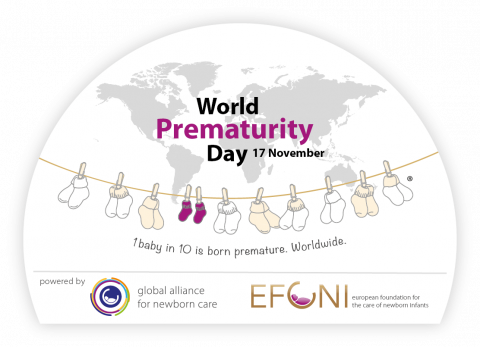November is also National Family Caregivers month! Access resources to support caregivers' mental health.

Prematurity Awareness Month
Nov. 11 - 19, 2021
NICHQ is proud to support Transgender Awareness Week-- a time dedicated to raising the visibility of transgender people and addressing issues members of the community face.
Browse resources for healthcare professionals and families supporting transgender children.
Preterm birth is a leading cause of infant mortality.
According to the Centers for Disease Control, about 1 in 10 babies are born preterm, or before completing the normal 37 to 40 weeks of pregnancy. These babies miss out on the important growth and development that happens in the final weeks.
Medical experts don’t know all the reasons that some babies are born prematurely, however, there are certain risk factors that can increase the chance for preterm birth, including delivering a premature baby in the past, being pregnant with multiples, tobacco use and substance abuse, and a short time (less than 18 months) between pregnancies.
Carrying to full term helps safeguard against some of the greatest threats to infant health.
During the month of November, NICHQ is proud to recognize Prematurity Awareness Month and help spread the word about the importance of reducing preterm birth and ensuring babies, mothers, and birthing people from all communities are supported with resources and services necessary to carry to full term.
Reducing Early and Preterm Births
Ten percent of babies born in the U.S. are born prematurely, placing them at higher risk for health problems and complications. Wondering how to improve? Consider the following:
- Support screenings that identify risk factors for preterm birth
- Provide training to enhance patient, family and community engagement
- Improve access to progesterone, which can help alleviate premature births
- Advance education about the risks of nonmedical early elective delivery
Looking for more ideas?
- Read our case study about states' Efforts to Address Preterm Birth Rates.
- Watch the accompanying webinar where States Share Interventions, Policy Efforts, & Emerging Issues
Read more from NICHQ for strategies to reduce infant mortality in underserved populations.
Closing Disparity Gaps in Preterm Birth
According to the CDC, racial and ethnic differences in preterm birth rates continue to persist. In 2020, the rate of preterm birth among non-Hispanic black women (14.4%) was about 50% higher than the rate of preterm birth among non-Hispanic white women (9.1%) or Hispanic women (9.8%).
Underserved populations—those with life circumstances that make them susceptible to falling through the cracks in the healthcare system—often have inadequate support and services, creating greater risks for preterm birth and infant mortality.

Celebrating World Prematurity Day
November 17th is World Prematurity Day!
We are proud to join March of Dimes in amplifying the voices of families affected by prematurity who share an unspoken connection through the challenges they face and triumphs they experience.


